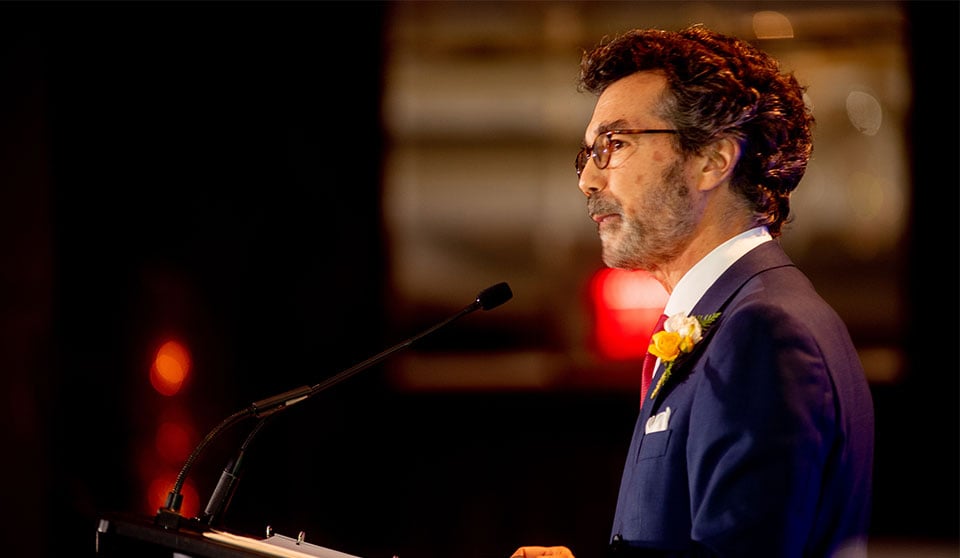
Pratte accepted this year’s OBA award of Excellence in Civil Litigation

If you ask Guy Pratte — who accepted this year’s Ontario Bar Association award of Excellence in Civil Litigation 2019 — he has actually never achieved excellence.
Pratte is a partner Borden Ladner Gervais LLP, a fellow of the American College of Trial Lawyers, recipient of the Law Society of Ontario Medal, a seasoned veteran of the Supreme Court, and chair of Pro Bono Ontario.
But during the Nov. 21 event, Pratte did not try to dazzle the audience gathered at Toronto’s Ritz-Carlton with his successes. Rather, he said, he preferred to share lessons learned from his failures: becoming tongue-tied in Divisional Court as a young lawyer; or having a judge admonish him for a “boring” argument.
“At best, on rare occasions in the last 35 years, I may have come as near [excellence] as my limited talents allowed,” said Pratte’s written remarks, shared with Law Times. “But if I did, it is only because — like you — I tried every time to attain excellence. And that pursuit of excellence is – I believe — innately worthwhile, regardless of one’s field of endeavour, or whether one is ever publicly recognized for it.”
Pratte noted that his wife and family, as well as many colleagues in the profession, made the stress of legal work “bearable.”
“Launching my ‘career’ in advocacy, I often felt like the contemporary performer who brazenly hurls himself from the stage, confident that his painful fall to the ground will be avoided by the innumerable outstretched arms that will carry him through the crowd and safely back onto the stage,” said Pratte. “What matters most is often found on the periphery of the limelight.”
Pratte’s career has also drawn on inspiration from unlikely facets of his life — including a stressful home renovation. He pointed to Jose, a workman who stayed well past normal hours to lay tiles on the floor.
“He was putting each tiny one in its place, carefully and obsessively ensuring that they were perfectly positioned,” said Pratte. “His quest for excellence moved him to do much more than what was strictly required — indeed, more than we expected — even though his work would forever remain anonymous, as he surely knew. He asked of himself what his relentless pursuit of excellence commanded he deliver.”
Despite a career “strewn by self-doubts and frustrations,” Pratte said that he is driven to save the art of meaningful oral advocacy from “extinction or banalisation or irrelevance.”
“We must do this, not for our own sake, but for the sake of maintaining a legal system genuinely and firmly rooted in access to justice,” said Pratte.
Going forward, Pratte indicated that he wants to maintain a high standard for oral advocacy in Canada, saying “clients believe — literally — that they have a right to be heard, not just read.”
“We should at all costs avoid slipping into the American mode of oral hearings which — too often — are pro forma exercises masquerading as genuine oral advocacy,” he said. “Ensuring that the client sees and hears that her lawyer has had a fair chance to put her case to the court seems to me essential.”